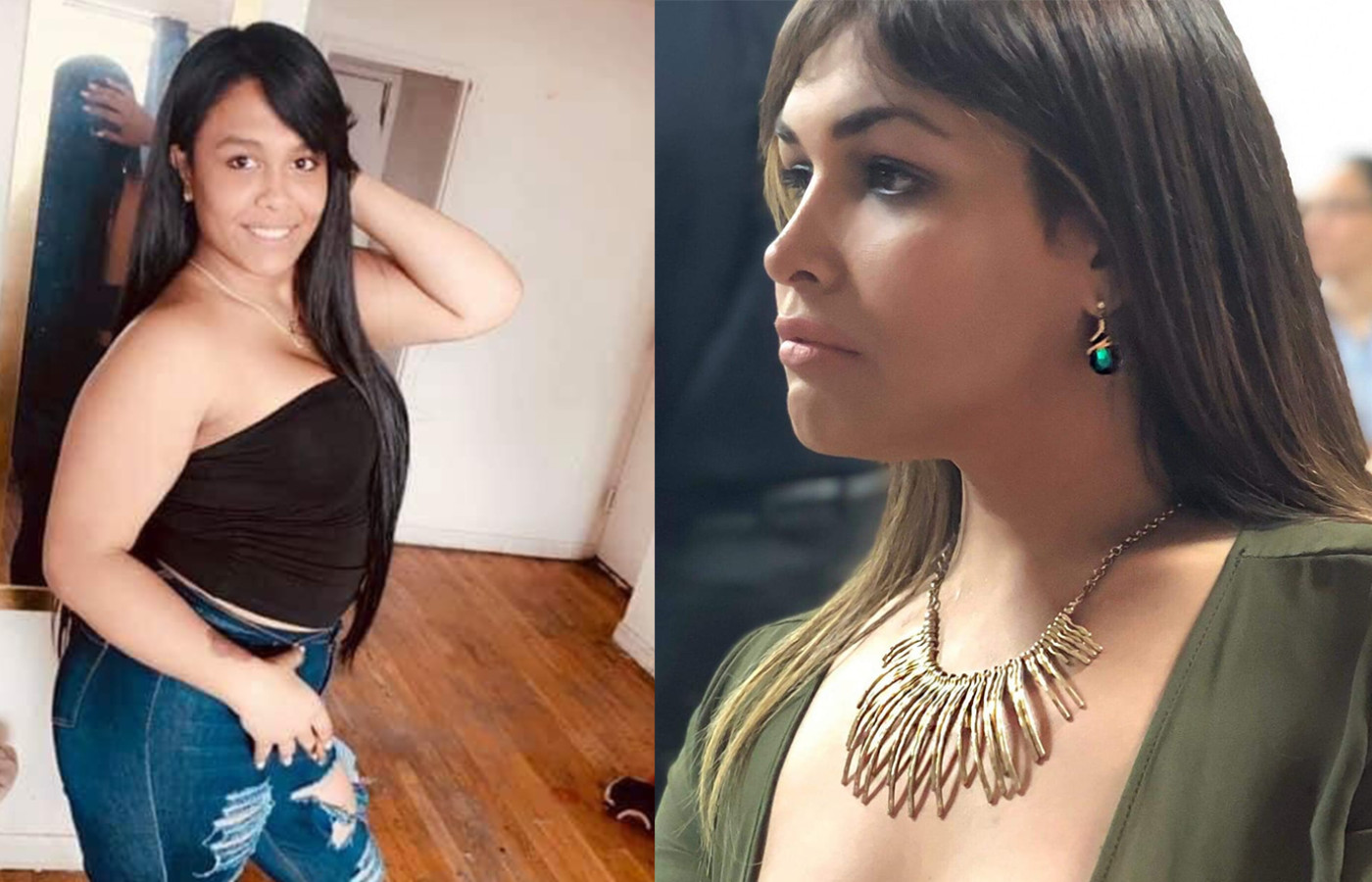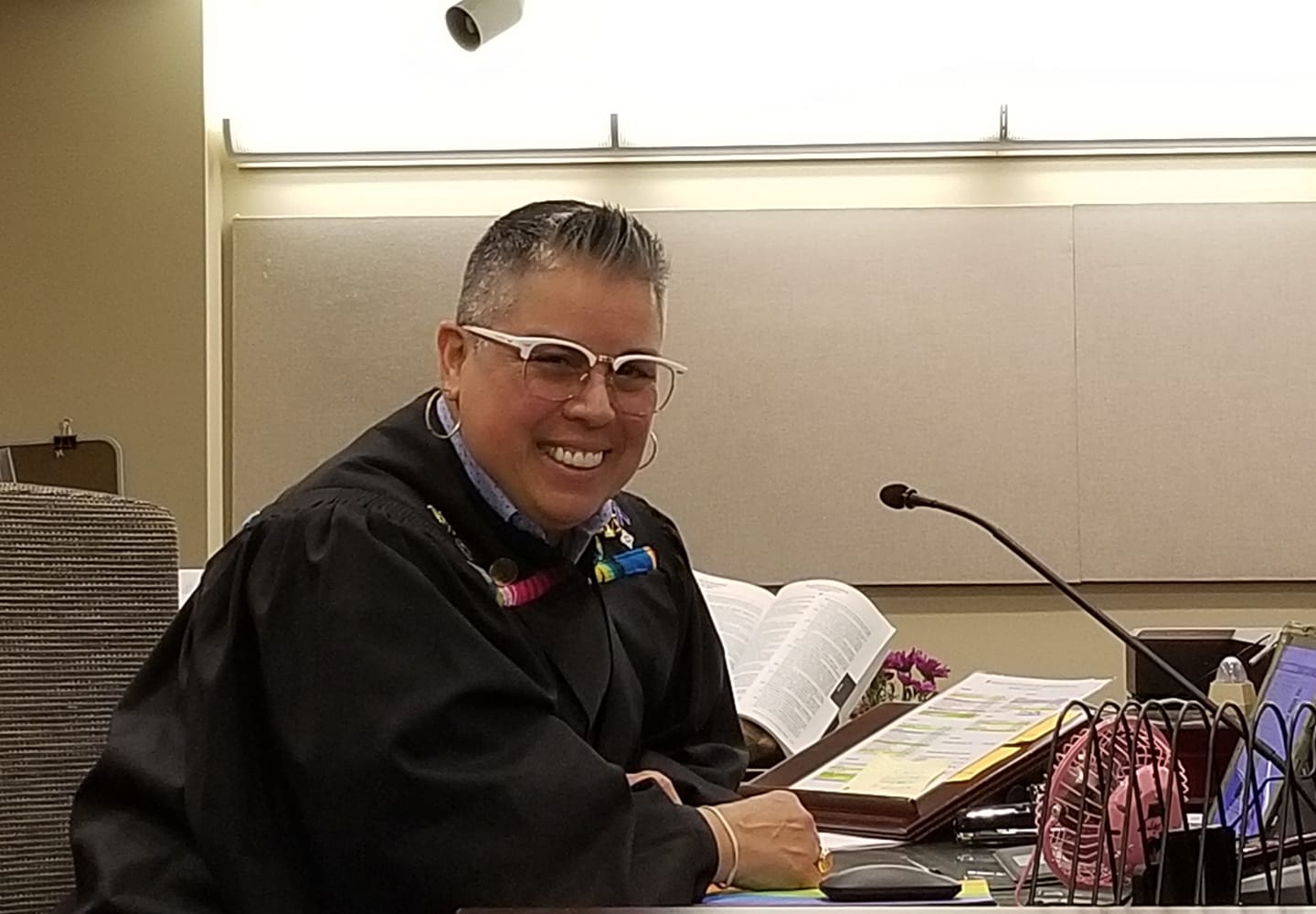A former police officer will receive $90,000 in damages after filing a lawsuit claiming he was denied employment as a sheriff’s deputy in 2012 when his prospective employer learned he has HIV. The case, along with another lawsuit involving two HIV-positive members of the Air Force who claimed they were discharged because of their HIV status, has brought renewed attention to policies surrounding HIV employment discrimination.
A lawsuit filed by Lambda Legal in the U.S. District Court for the Western District of Louisiana said the former officer, Liam Pierce, was up for a job with the Iberia Parish Sheriff’s Office in New Iberia until he disclosed his status during a pre-employment medical exam. According to the LGBTQ legal advocacy group, Pierce — who had moved to Louisiana in 2005 to assist in the relief effort following Hurricane Katrina — had experience working as a police officer, volunteer firefighter and paramedic.
Scott Schoettes, an attorney for Lambda Legal and the director of its HIV Project, said everything “seemed perfectly on track” for Pierce to land the job.
“He had good interviews and talked to them about an alleged misconduct at a previous job,” Schoettes told NBC News. “They said that wasn’t a problem.”
Schoettes was referring to a job Pierce lost with the Abbeville Police Department in Louisiana for discharging a firearm in front of two inmates held in custody.
Related
NBC OUT
Schoettes said everything changed, though, when Pierce informed the medical team evaluating him for employment about his HIV status. He alleged the plaintiff was told by doctors that having HIV “was not a disqualification for the job,” but shortly after his results were sent to the sheriff’s office, Pierce was denied the position. The department cited the incident at Abbeville as a pretense, but Schoettes said Pierce “immediately recognized where this was coming from.”
“This was a result of his HIV status, because he basically had the job until his medical evaluation,” Schoettes said. “He was pretty frustrated and upset.”
The Equal Employment Opportunity Commission found in 2018 that Pierce had probable cause to bring legal action regarding his claim, and he settled out of court on Tuesday with the Iberia Parish Sheriff’s Office. As a condition of the settlement, the department’s staff will undergo education and training regarding HIV, and the office’s hiring guidelines will include a statement that “discrimination on the basis of disability, including HIV status, is prohibited.”
Pierce said in a statement that it “feels good to finally be vindicated” eight years after his case was initially filed. “I hope that my case helps others avoid going through my experience,” he said.
Pierce’s experience is not isolated, according to the EEOC. While employment discrimination based on HIV status has been banned under the Americans With Disabilities Act since 2008, the federal agency reported that 155 people brought claims of workplace discrimination based on their HIV status in 2019. Although that accounts for just 0.6 percent of overall ADA discrimination claims brought to the EEOC, people living with HIV only make up about 0.3 percent of the U.S. population.
Pierce’s case is at least the second involving alleged HIV-related workplace discrimination to make national headlines so far this year. In January, the U.S. Court of Appeals for the 4th Circuit unanimously upheld a preliminary injunction against an Air Force policy discharging active duty service members based solely on their HIV-positive status. According to the court, the U.S. government “cannot reconcile these policies with current medical evidence” regarding HIV transmission.
The case is the first time federal courts have ruled on behalf of servicemembers living with HIV, according to Lambda Legal, which filed the lawsuit. It is now headed back to a lower district court to weigh in. Lambda Legal is also representing service members from other branches of the military in two companion lawsuits.
Related
NBC OUT
Jim Pickett, senior director of prevention, advocacy and gay men’s health at the AIDS Foundation of Chicago, said these cases illustrate the stigma to which people living with HIV are still subjected, despite decades of medical advancements. He said the fear that working with an HIV-positive police officer or airman will make their co-workers vulnerable to transmission is “based on pure ignorance and discrimination.”
“It’s not based on science,” he said. “HIV is not easily transmittable.”
According to the Centers for Disease Control and Prevention, it is “extremely rare” for individuals to contract HIV in the workplace. A guide to occupational HIV exposure posted on its website cautions that risk of transmission “varies by the type of exposure” but says, for instance, that the incidence of spreading HIV by being “splashed with body fluids” is “near zero.” Even among health care workers, arguably the most at-risk group for occupational HIV transmission, there have been only 58 confirmed cases ever in the United States.
It’s even less likely for individuals living with HIV to transmit the virus to another person if they are taking daily medications to suppress the virus. According to the Joint United Nations Program on HIV and AIDS, studies show that people who are undetectable, meaning that their viral load is so low it cannot be detected through HIV testing, “cannot transmit HIV sexually.”
But Pickett explained that despite these facts, it has been “very hard” for advocates to change “entrenched” beliefs about HIV dating back to the early days of the crisis, particularly the idea that people living with the virus are “dirty and bad.”
“There’s still this strong segment of society where facts don’t matter,” he said. “We can see this with anti-vaxxers and climate denialists, and we can see this with people right now who are going out and fighting public health authorities and governors to open up the economy because they think the coronavirus is an overblown hoax.”
Related
NBC OUT
Experts said these misconceptions about HIV and those affected by the virus will continue to prevent people from speaking out about the routine discrimination they experience. Aisha Davis, director of policy at the AIDS Foundation of Chicago, said it’s “really difficult to know exactly how many people” are experiencing targeted bias in their places of employment because these individuals are often “suffering in silence” to avoid bringing “more attention to themselves.”
“When you’re talking about a population of people who already fight stigma on a day-to-day basis, there’s an acceptance of a certain amount of discrimination that they experience,” Davis told NBC News. “The assumption is usually that this is something that everyone experiences. It’s terrible, but it’s the status quo.”
Despite federal protections under the Americans With Disabilities Act regarding workplace discrimination, many states still have decades-old laws on the books criminalizing the transmission of HIV between sexual partners. According to a 2017 report from the legal advocacy group Center for HIV Law and Policy, 36 states had some form of legislation on the books mandating a misdemeanor or a felony charge for exposing another individual to HIV. Davis said these kinds of laws, although seemingly unrelated to workplace discrimination, can erode the faith of people living with HIV that their state and federal governments are on their side, even in areas where they are protected.
“A lot of people don’t think that the policy or the regulation is actually going to protect them, so we need cases like these,” she said of the lawsuits brought by Pierce and the airmen. “We need to see these wins, and we need to amplify these wins, because people need to know that it’s not just a pretty piece of paper or some really nice words. We need to know that it’s something that every person has access to.”
Schoettes said he hopes the two cases send a message to people living with HIV and prospective employers that not only is it illegal to refuse to hire someone based on their HIV status, but it’s also irrational.
“A person living with HIV is capable of doing any job in the world safely,” he said.

